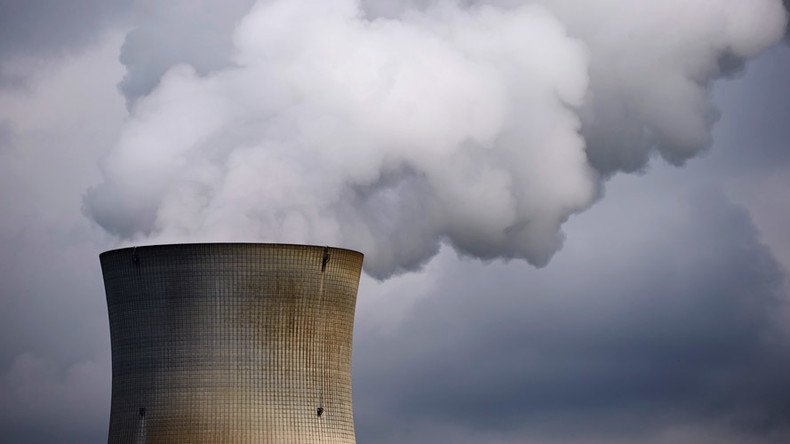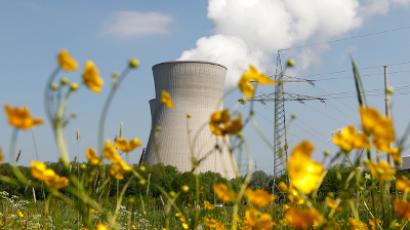Swiss reject premature nuclear power phase-out

The Swiss public has rejected a hasty exit from dependence on nuclear energy, voting ‘no’ on a proposal in a national referendum to shut down the country’s five nuclear reactors by 2030.
Following the Fukushima nuclear disaster in March 2011, the Swiss government decided in May of that year to abandon plans to build new nuclear power plants and reactors. In its 2050 Energy Strategy, the Federal Council proposed a gradual withdrawal from the nuclear energy program.
Under Switzerland’s direct democracy system, proposals need support from both a majority of the country’s cantons and of the national vote to pass. However, the popular initiative “For an orderly withdrawal from the nuclear energy program,” backed by the Green Party, failed to get enough votes during Sunday’s referendum.
Nearly 55 percent of voters rejected the initiative, with 45 percent favoring the proposed measures, which aimed to prohibit the construction of new nuclear power stations. It also demanded a limit be placed on the operational lives of existing nuclear power stations.
Only six of the country’s 26 cantons, mainly in French-speaking Switzerland, came out in favor of the phase-out, according to Swiss Info.
“We would have liked to win, that’s clear, but 45 percent for ‘yes’ is a good result,” Regula Rytz, Green Party chairwoman, told SRF television.
“The problems haven’t been resolved with this referendum Sunday,” Rytz said. “We will keep at it on safety, on financial security… and on expanding renewable energies.”
If the initiative had been approved, nuclear power stations Mühleberg and Beznau 1 and 2 would have been closed in 2017, Gösgen in 2024, and Leibstadt in 2029.
Switzerland has five nuclear power stations, which produce around 35 percent of Switzerland’s electricity. Currently, all of these stations have open-ended operating licenses, allowing them to continue operating for as long as they are deemed safe.
Each year, the Swiss Federal Nuclear Safety Inspectorate (ENSI) measures the radioactivity of liquid waste coming out of Switzerland’s nuclear reactors. A nuclear site emitting less than a gigabecquerel over the course of a year meets ENSI’s target.
Ahead of the vote, the Swiss government and industry opposed the initiative to hastily close Switzerland’s nuclear power stations. Fearing that a reduction in electricity output could not be compensated for by renewable sources, many believed that the country would be forced to import a large amount of electricity.
Economiesuisse, a group representing Swiss business, said the referendum sends a clear signal for “a secure electricity supply and strong domestic energy production.”
“From a business point of view, it was clear that a hasty exit from nuclear energy would only have brought disadvantages for Switzerland,” the group added.













